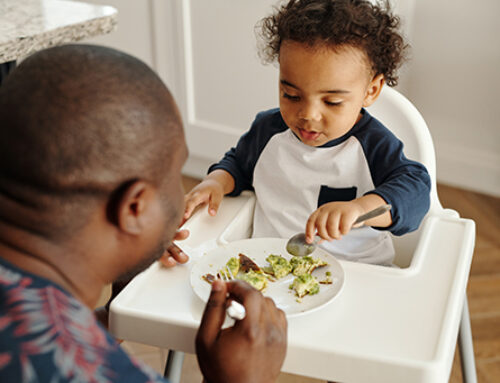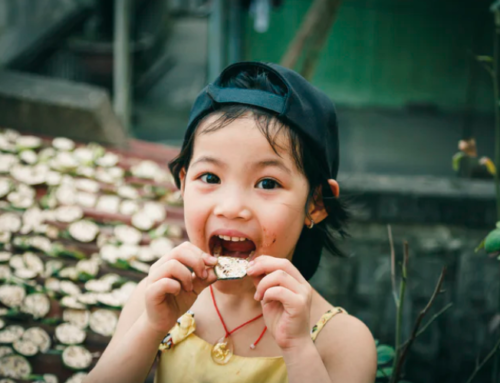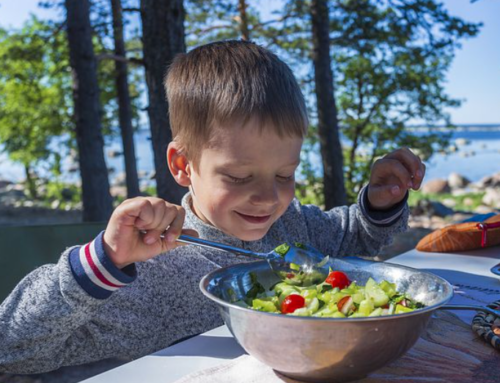The holidays are an excellent time to sample delicious treats and relish in the plenty. However, with the holiday season soon followed by the “work off that turkey” or “get beach ready” season, it is common for young children to absorb negative messages about their body and appearance.
The relationship children develop with their bodies starts early and lasts a lifetime. Children as young as three will observe and internalize cues from their environment about the “perfect body” and ways to improve their appearance. Researchers from the University of Illinois School of Social Work found that body-related self-confidence is influenced as early as preschool by a child’s family and home environment. And yet, it’s not easy to be body positive all the time; it is difficult to escape a world of weight loss commercials, picturesque models, and nonstop diet advertisements.
But here’s the good news – as a child’s first teacher in life, parents and caregivers have the power to turn poor self-image and anxious body thoughts into self-confidence and body positivity at any age. A caregiver’s efforts to encourage body–related self-confidence reduces the risk of unhealthy dieting habits and mental health disorders linked to poor self-image later in life.
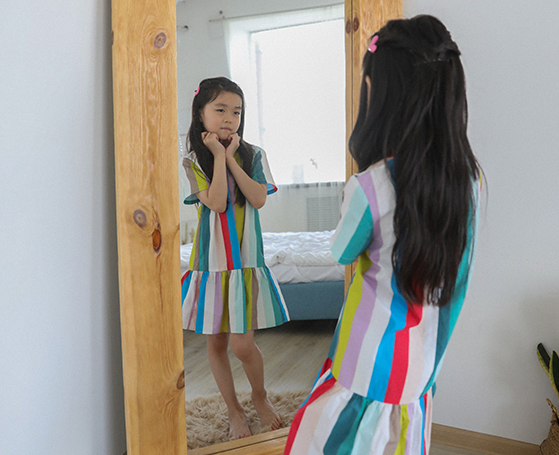
Curious where to start? Consider the following when setting the stage for a body-positive household!
- Check yourself – as the caregiver, consider the body messages you have heard and the impact this had on you. Were these messages helpful or hurtful? Why was this important at the time? Is this something you want for your child? Always remember your experiences influence the way you communicate. Make sure your (and your family’s) comments are helpful, not hurtful.
- Focus on ability instead of appearance – preschool and elementary school-aged kiddos LOVE hearing about their accomplishments. When mentioning their bodies, or when you hear them use negative body talk, reframe the conversation to focus on what their body can do.
| Instead of | Try this |
| “My/your legs are so big!’ |
|
| “My/your stomach is huge.” |
|
| “My ___ looks awful!” |
|
| “I don’t like the way I look.” |
|
- Finally, the more the merrier. Displaying different body types in your children’s books, TV shows, and YouTube channels will show your child there are lots of different bodies out there that can have fun and do wonderful things. The following resources are excellent ways to make body-positivity a routine part of your child’s day:
- Books: Her Body Can by Katie Crenshaw, I Like Me! By Nancy Carlson, My Magical Choices by Becky Cummings, What if Dinosaurs were Pink? By Jarret Whitlow
- Physical activity: taking time to move our bodies daily will promote family time and increase awareness of our body’s need for movement. The Super Stretch yoga app is a BBD staff favorite!
- Music: Sesame Street has body-positive messages with familiar characters. I’ve got a body, The color of me I love my hair (English), Spanish version
- YouTube: Barbie’s Vlog channel , My Froggy Stuff , Kid’s Vocabulary, body edition
The best part about these tools is that they apply to everyone, anytime. No matter the developmental level or engagement style, you can always tell your child how powerful they are, how important their body is, and how wonderful they are.
Feel free to reach out to your Blue Bird team for more body–positivity activities. Connect with your child’s pediatrician and your Blue Bird Day dietitian if you suspect unhealthy food habits are interfering with your child’s ability to grow and develop.
Wishing you a happy new year and a (body) positive outlook!
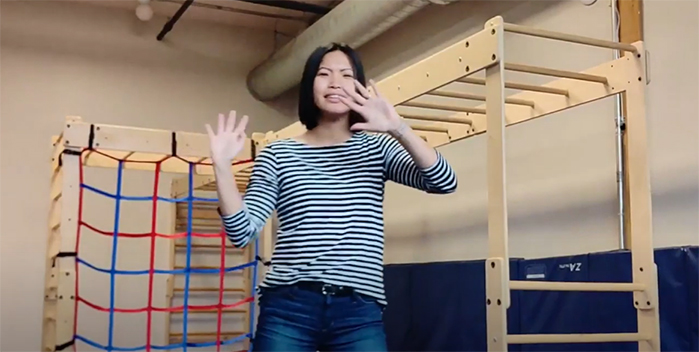
Looking for more ideas on how to promote body-positivity?
Check out our Blue Bird Day music videos to dance your way to a positive outlook.
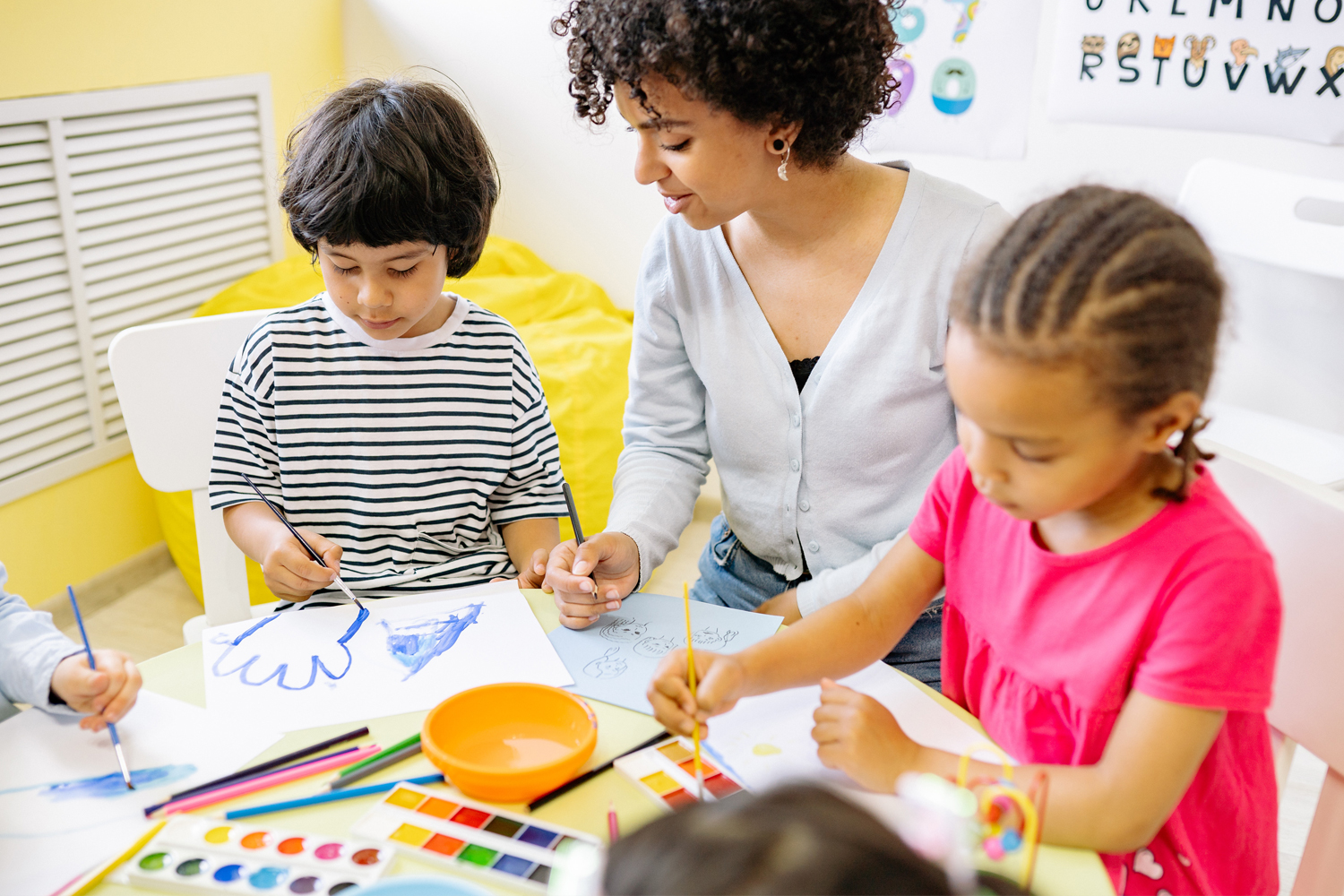
Blue Bird Day fosters socialization, sensory regulation, and pre-academic learning in children ages 2-7 years in therapeutic rotations that simulate preschool and kindergarten settings. Our compassionate therapists practice a relationship-based and family-centered approach, provide parent training, and collaborate on goals and individualized intensive treatment plans for your child.
We believe in a collaborative and multi-disciplinary team approach to therapy. A team of occupational therapists, speech-language pathologists, dietitians, developmental therapists, behavioral therapists, physical therapists, and therapeutic assistants are created for each child to ensure child and family are fully supported and the best possible results are achieved.
Options for individualized, group and virtual therapy sessions are available as well.
Want to learn more or you have a specific question? Feel free to connect with us here!

